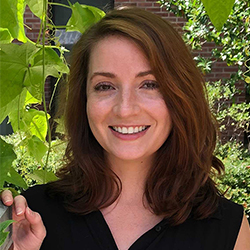 Assistant Professor
Assistant Professor
Research Areas:
Biography
Elizabeth Doncheck, Ph.D. is an Assistant Professor in the Department of Neurobiology at UAB. She received dual B.A./B.S. degrees in Psychology and Biology from the University of Wisconsin-Milwaukee prior to her Ph.D. in Biological Sciences from Marquette University in 2019. She subsequently conducted her postdoctoral training at the Medical University of South Carolina before joining the faculty at UAB in 2025.
Research Interests: Nothing in biology is static, and the neural computations that govern executive functions are no exception. In substance use disorder, both relapse vulnerability and the corresponding patterns of neural activity fluctuate with hormonal state and across patient subpopulations, precluding reduction to a one-size-fits-all mechanism. Disentangling these dynamic influences is essential for translating fundamental discoveries into effective interventions—and defines the Doncheck Lab mission. To achieve this goal, Dr. Doncheck has developed advanced preclinical models that integrate in vivo multiphoton imaging, holographic optogenetics, and drug self-administration paradigms. This platform affords single-cell, sub-second resolution of neural ensemble activity during drug seeking and, in combination with molecular analyses, enables the lab to delineate how biological sex and hormonal milieu modulate the neural computations underlying executive function and relapse.
Education
Graduate School
Ph.D., Marquette University
Contact
Email
doncheck@uab.edu






